Once in a ‘Blood’ Moon: This year's last lunar eclipse is simply stunning
The Beaver Blood Moon was out and so were stargazers with their telescopes. An exciting time for space enthusiasts; the last lunar eclipse of the year proved to be a visual delight

1/8
The blood moon is seen during a total lunar eclipse in Fish Creek, some 230 kilometres southeast of Melbourne on 8 November. This year’s lunar eclipse will be the last one until 2025. A lunar eclipse occurs when the Sun, Earth and Moon line up in a straight line in space. The lunar eclipse has now ended. AFP
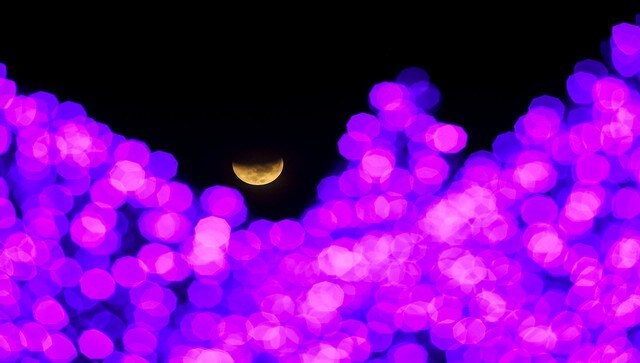
2/8
Seen past Christmas lights, the earth’s shadow starts to cover the moon during a lunar eclipse at a public square in Caracas, Venezuela. Beaver Blood Moon gets its name from the fact that this is usually the time beavers start to take shelter in their lodges with sufficient stores of food for the long winter season ahead. AP
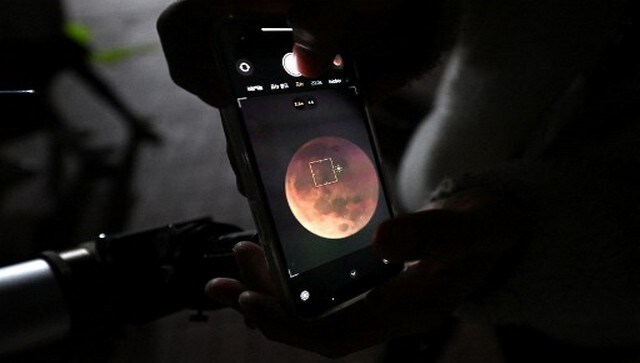
3/8
A man uses a smartphone to take picture of a blood moon through a telescope during a total lunar eclipse in Goyang, northwest of Seoul. A Blood Moon gets its red colour when sunlight hitting the Earth’s atmosphere is scattered out. When this happens, the atmosphere filters out most of the blue light. What’s left is a red hue, giving the moon its ‘blood’ colour. AFP
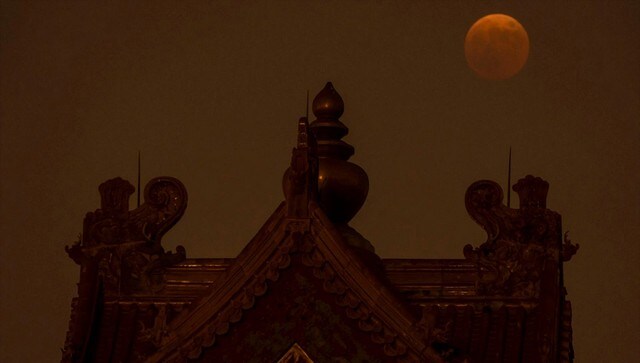
4/8
The moon rises behind a corner tower along the outer walls of the Forbidden City during a lunar eclipse in Beijing. The intensity of the red colour on pollution levels, cloud cover and debris in the atmosphere. AP
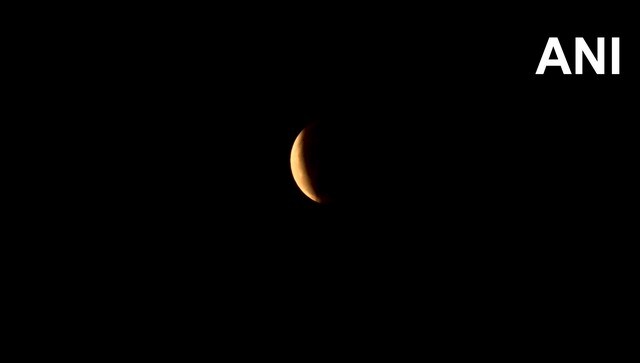
5/8
Lunar eclipse as viewed from Guwahati. Apart from Assam’s capital, the eclipse was visible from regions like Kolkata, Arunachal Pradesh and some other cities in eastern India. ANI
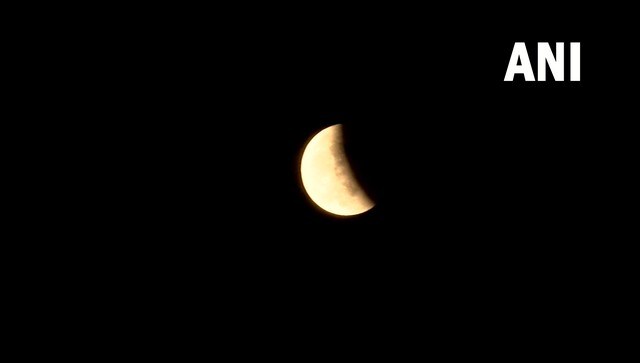
6/8
Visuals of the last solar eclipse of the year from Patna. The lunar eclipse began at approximately 2:39 pm and ended at 6:19 pm in India. ANI
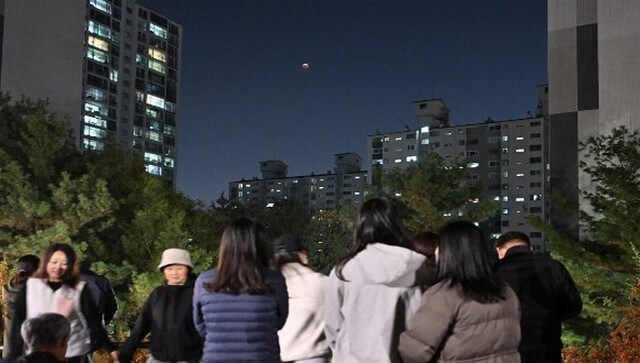
7/8
People in Seoul watch a blood moon during a total lunar eclipse. AFP
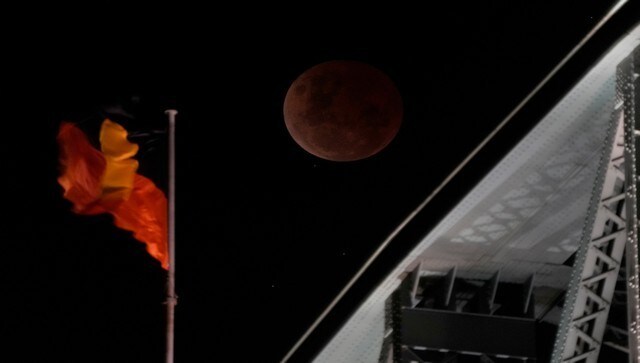
8/8
The moon is over the Sydney Harbour Bridge during a lunar eclipse. The total lunar eclipse was visible across North and Central America, Asia, Australia as well as New Zealand. AP
